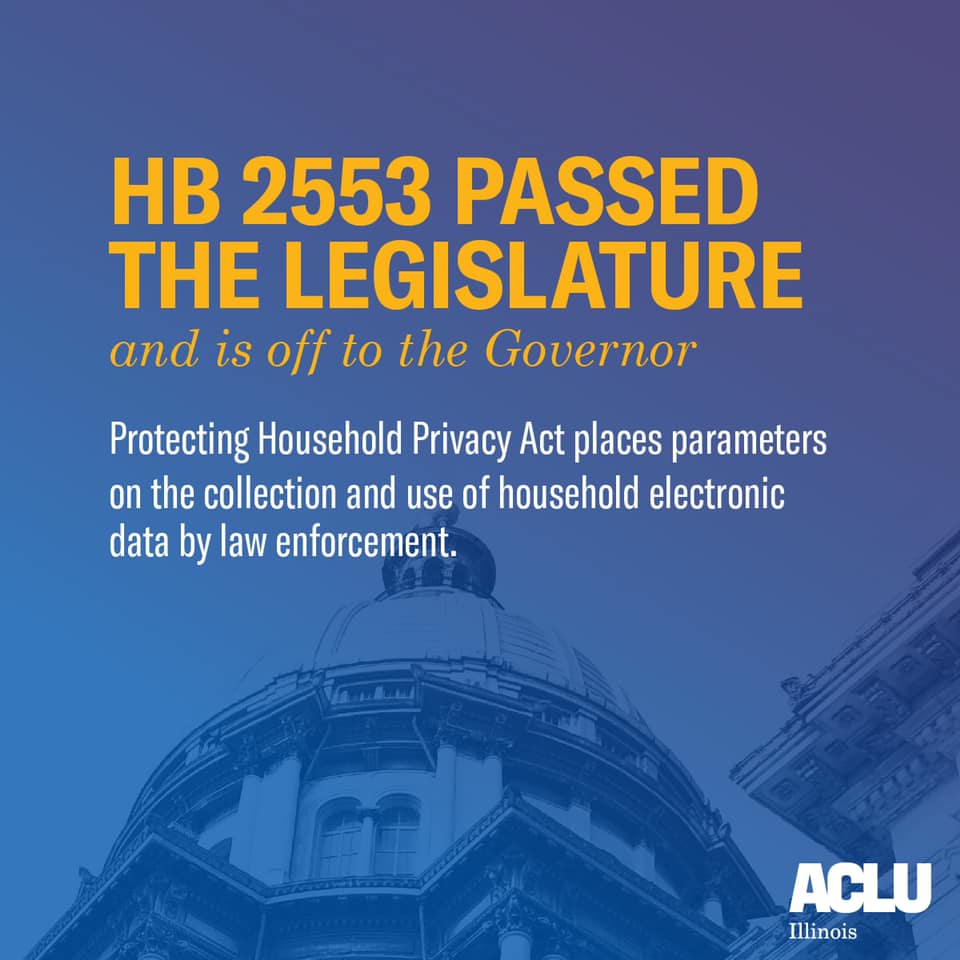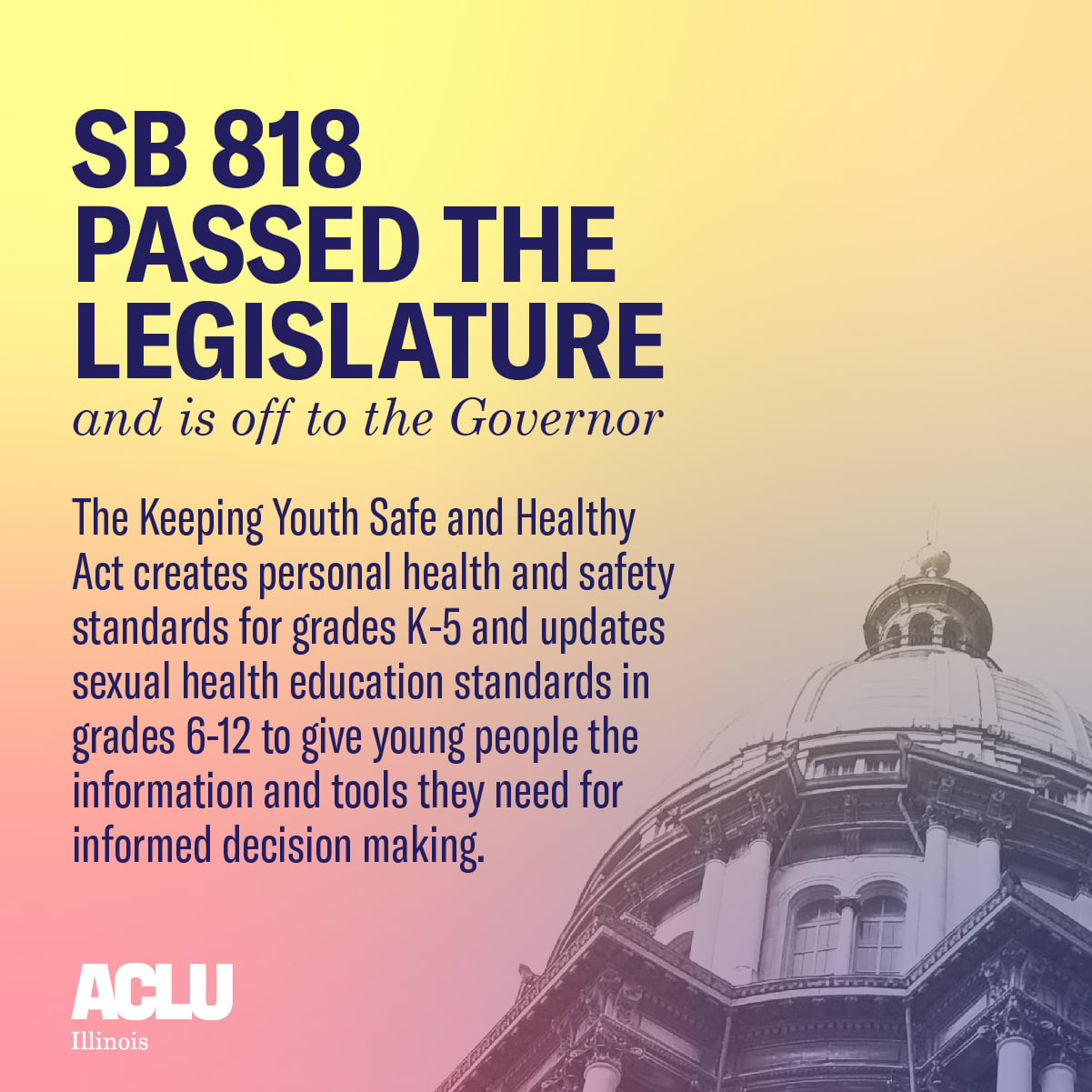The following statement can be attributed to Khadine Bennett, Director of Advocacy and Intergovermental Affairs, ACLU of Illinois:
“Both chambers have now approved House Bill 2553, the Protecting Household Privacy Act, which now goes to the Governor for enactment. The bill provides modest guidelines on how law enforcement can access intimate data collected by household electronic devices like virtual assistants, Ring doorbells and smart appliances. As these devices grown in popularity, it is critical to protect the range of data collected by these devices.
This measure is consistent with efforts in Illinois over the past several years to strike a critical balance between emerging technologies each of us use for our personal convenience and the personal data about residents in our state captured by these devices.
We are grateful to Senator Cristina Castro and Representative Ann Williams for their leadership and vision, not only on this measure but on their commitment to protect privacy for all Illinois residents.
We urge the Governor to sign this bill as soon as possible.”
Date
Monday, May 31, 2021 - 6:45pmFeatured image

